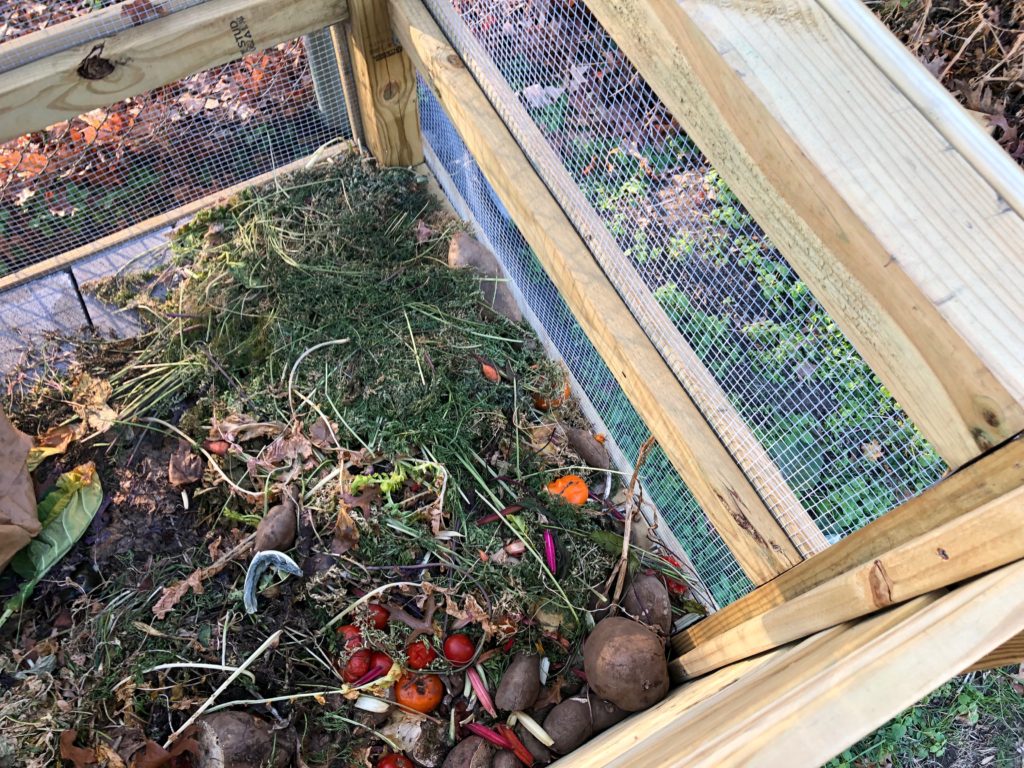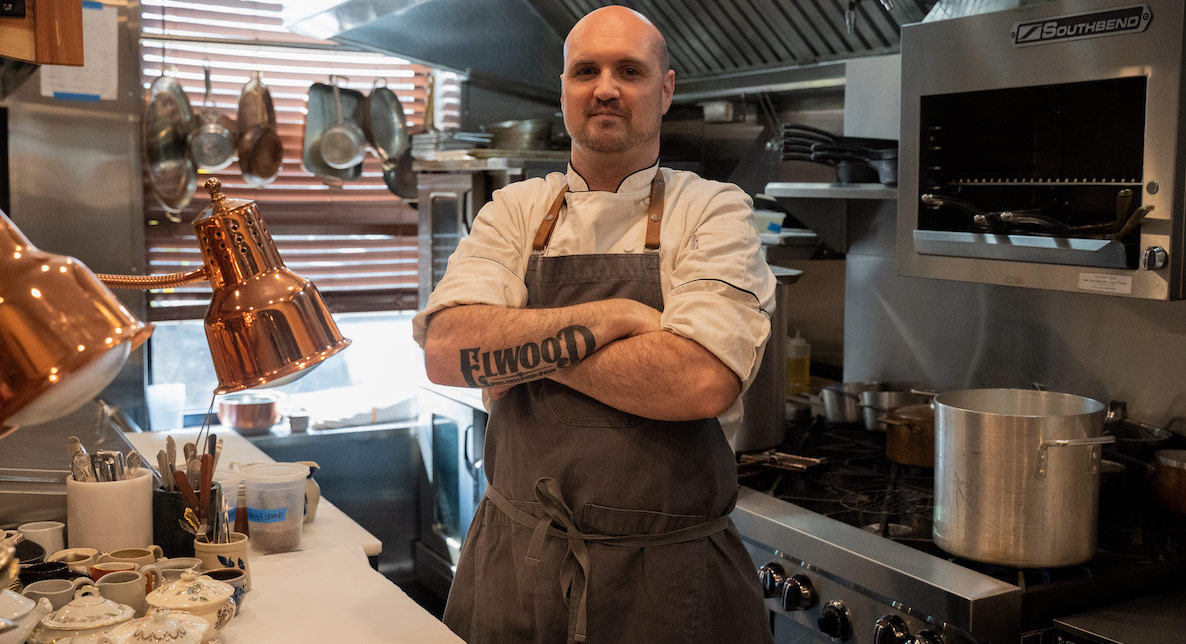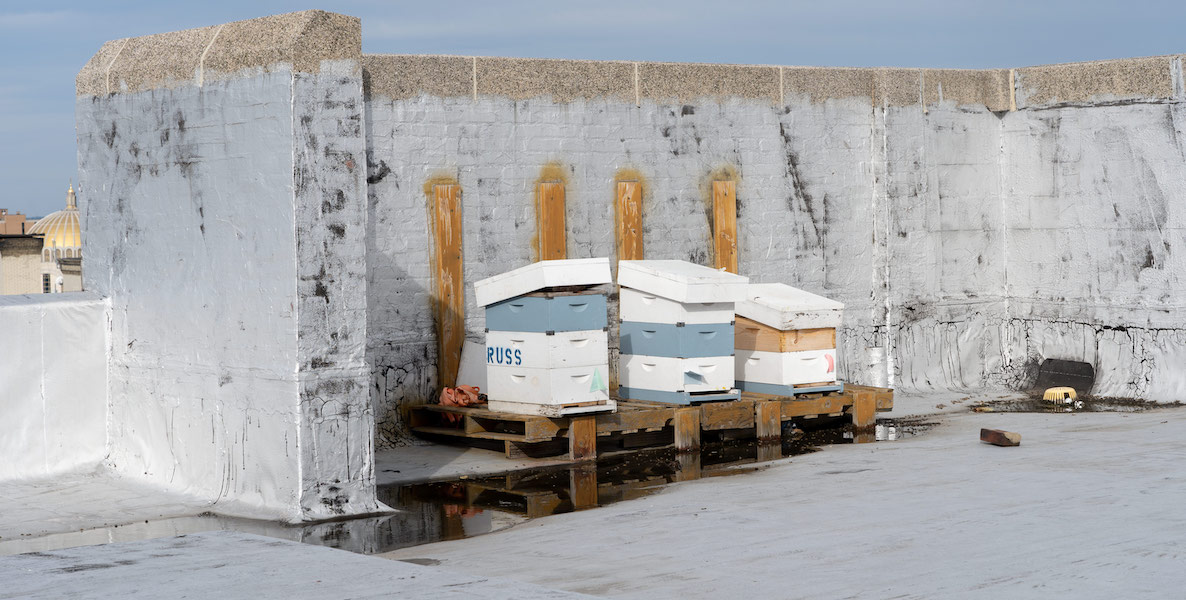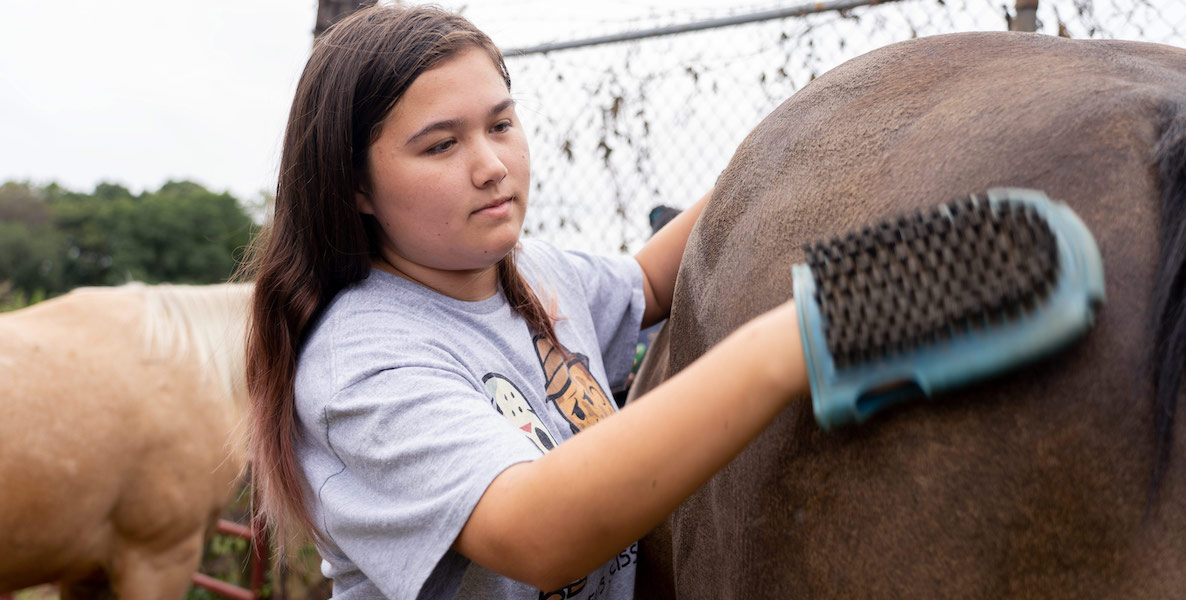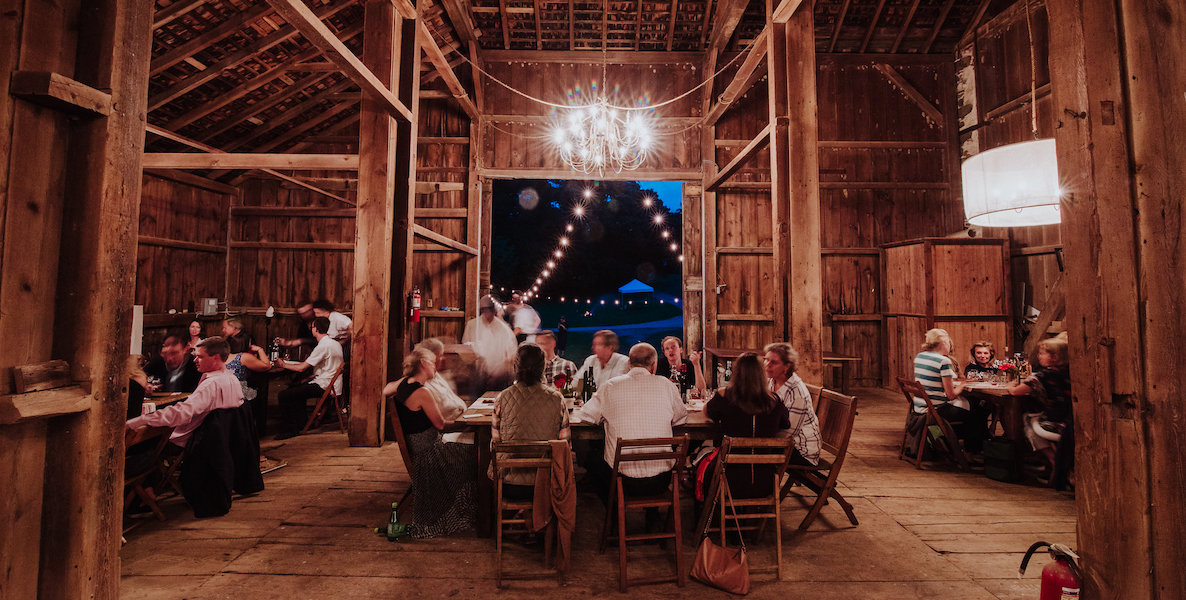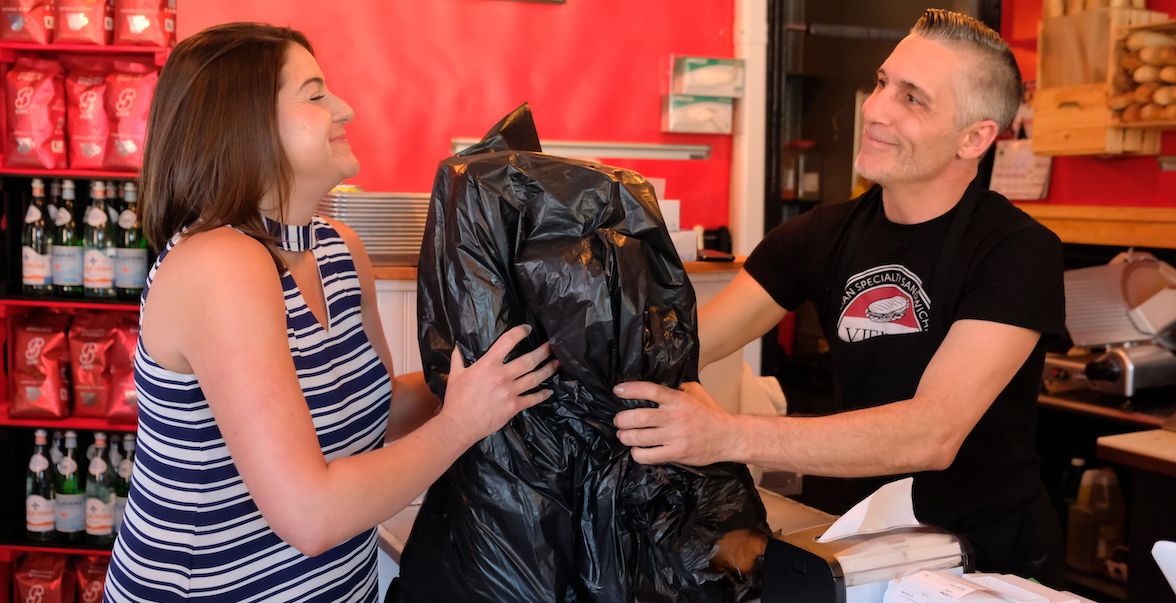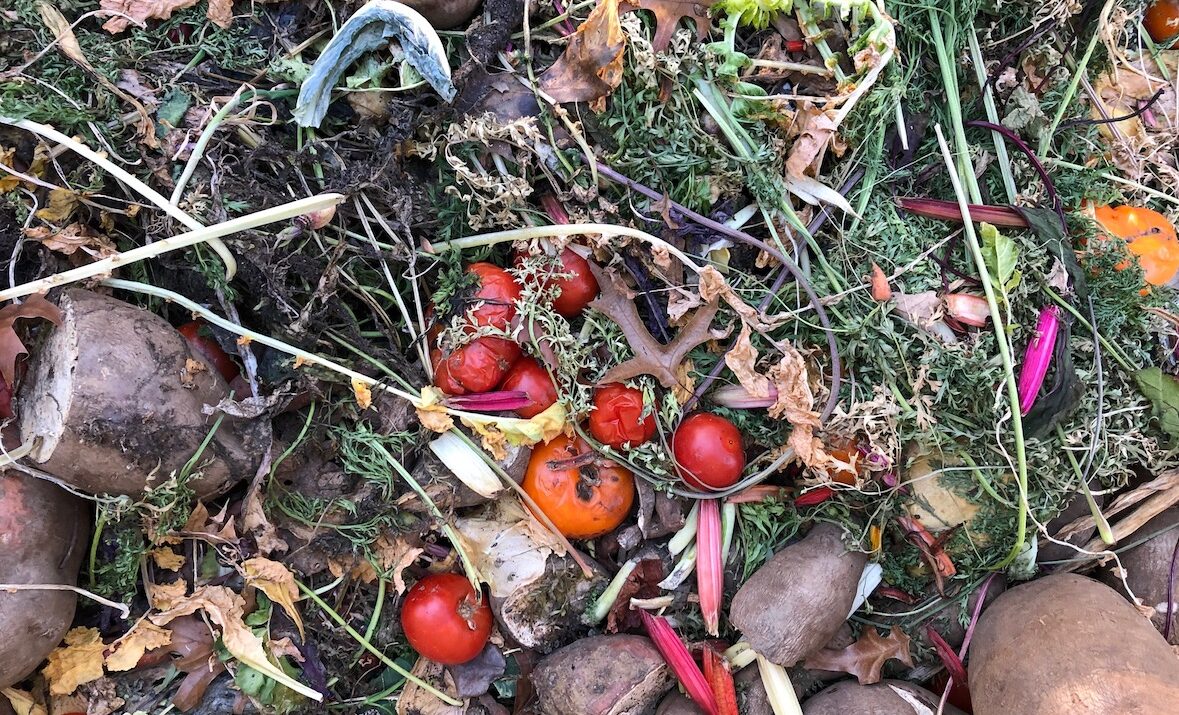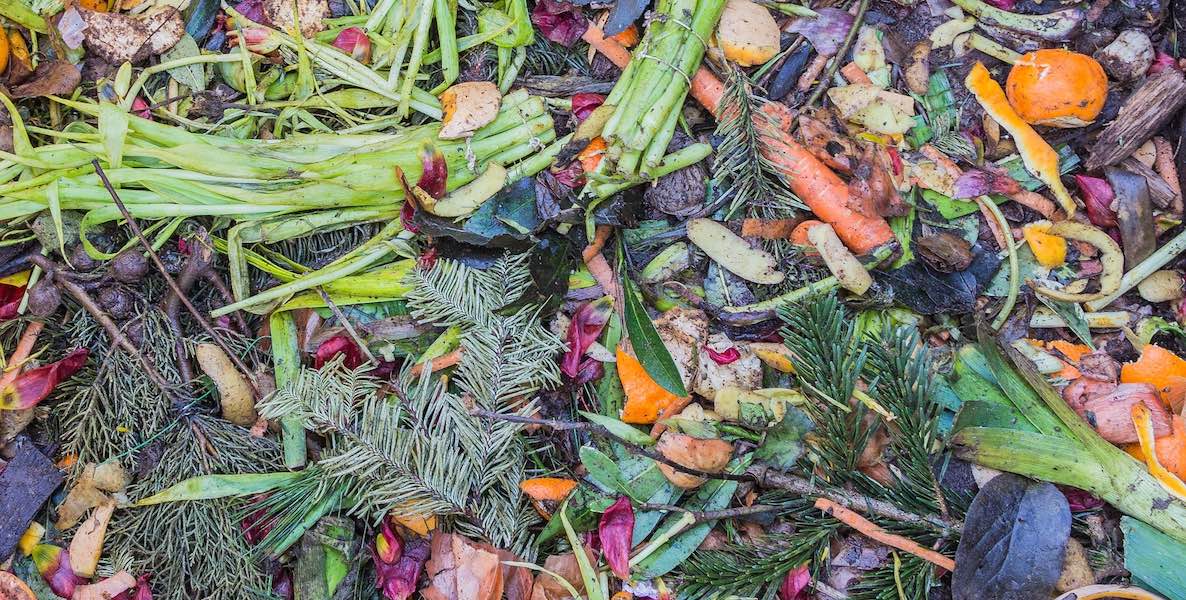On a recent Saturday at the Carousel House community garden in Fairmount Park, a huddle assembled around a massive plywood box full of food scraps. “If it’s bigger than my hand — like five inches — chop it,” says the enthusiastic composting instructor, holding up her gloved hand. “And put big signs up so people don’t leave stuff outside the bin.” The sea of colorful knit hats nodded.
These folks represent 11 community gardens, urban farms and schools across the city; they are the pioneers of Philadelphia’s pilot Community Composting Network who will help their neighborhoods turn organic waste into nutrient-rich plant food.
![]() Funded by grants from Comcast and the Pennsylvania Department of Agriculture, the program is headed up by the city’s Office of Sustainability and Department of Parks and Recreation. They provide the 12x4x4-foot, three-compartment compost bin, training and ongoing support for each site as it gets set up.
Funded by grants from Comcast and the Pennsylvania Department of Agriculture, the program is headed up by the city’s Office of Sustainability and Department of Parks and Recreation. They provide the 12x4x4-foot, three-compartment compost bin, training and ongoing support for each site as it gets set up.
The idea is this: neighbors bring their food and yard scraps to a nearby site and share the responsibility of turning the piles and maintaining the bin. The resulting fertilizer is available to all participants for use in garden beds, window boxes, potted plants at home, or even trees lining streets nearby.
The city’s review committee last week announced the pilot sites from 22 applications submitted over the summer. These first composters, like Greensgrow Farm, Brewerytown Garden, and Urban Tree Connection, have well-established neighborhood networks.
“This is a community affair,” says the city’s director of urban agriculture Ash Richards, who’s in charge of rolling out the program. “We want each site to work with the folks around them.”
Once these first sites are up and running, they’ll continue to expand the network to more locations around Philly to help accomplish the city’s zero waste goal.
When food waste goes into a landfill it produces methane; when it’s composted it’s actually sequestering carbon.
In 2016, Mayor Kenney signed the Zero Waste and Litter Executive Order, committing Philly to becoming 90 percent zero waste (10 percent of waste will go to a waste to energy facility) and litter-free by 2035. That means fully eliminating the use of incinerators and landfills.
It’s a daunting challenge, but Kenney’s Zero Waste and Litter Cabinet determined, “The biggest bang for our buck we were going to get right away was addressing food waste,” says cabinet director Nicolas Esposito. According to data collected by the Philadelphia Streets Department, organics account for 30 percent of our waste stream, which adds up to about 400,000 tons of food and yard scraps thrown into the landfill annually. Composting is a huge step forward in terms of diversion, and it’s an environmental boon. When food waste goes into a landfill it produces methane; when it’s composted it’s actually sequestering carbon.
And the concept is, surprisingly, not new to Philly. From the 1930s to the 1990s, ![]() Philly had a robust curbside composting operation. “You’d put out your green bucket and it would be delivered to pig farmers in New Jersey,” says Esposito. They’d collect around 30,000 tons of food scraps from Philadelphians each year and pay the pig farmers to use them—which was cheaper than shipping them off to the landfill. “We were actually ahead of the curve,” Esposito says. The program fizzled out as development in parts of South Jersey put many pig farmers out of business.
Philly had a robust curbside composting operation. “You’d put out your green bucket and it would be delivered to pig farmers in New Jersey,” says Esposito. They’d collect around 30,000 tons of food scraps from Philadelphians each year and pay the pig farmers to use them—which was cheaper than shipping them off to the landfill. “We were actually ahead of the curve,” Esposito says. The program fizzled out as development in parts of South Jersey put many pig farmers out of business.
In the past five years, private companies like Bennett Compost and Circle Compost have started to fill the gap, but there are a few reasons the city isn’t trying to implement their own curbside composting program again just yet. First, without enough local pigs to eat our food scraps, we’d have to create an urban composting permit (which doesn’t yet exist in PA) before building a facility —two things the Department of Parks and Recreation is trying to do as part of their recently announced RFP for a service that would collect and compost organic waste from all rec centers in the city.
Plus, curbside pick-up doesn’t accomplish the goals of the Community Composting Network: to build composting know-how at the local level, engage citizens in responsibly dealing with our own waste, and improve the health of our soils right here in the city.
The idea for this type of project grew out of a compost design competition put on by the Philadelphia Food Policy Advisory Council (FPAC)’s Zero Waste Subcommittee, part of the Mayor’s Office of Sustainability, in 2017. They sought designs for composting infrastructure that were neighborhood-scale, enclosed, easy to build and maintain and could be used by schools and community organizations.
The contest didn’t turn up any models the city thought were foolproof, so they turned to the tried and true three-bin model, according to former FPAC manager Hannah Chatterjee. The three-bin system — the industry standard for small-scale urban composting — allows you to have compost in different stages of decomposition simultaneously; after the first bin is full, you move the material to the second and start the cycle over. While on a field trip to check out D.C.’s Community Compost Cooperative Network, FPAC members saw this system in use and a model to work from for Philly’s program.
In D.C., there are more than 50 small-scale composting sites and more than 1,000 active composters around the city, thanks in part to Joshua Singer, community garden specialist at D.C. Parks and Recreation. Singer started working on community composting 10 years ago, before there were many resources available on the subject. One problem he faced over and over: rodents invading the bins. In collaboration with Urban Farm Plans, he designed a new and improved rat-proof bin called Compost Knox. In Philly, PowerCorpsPHL is using the open source plans to build these bins for our program.
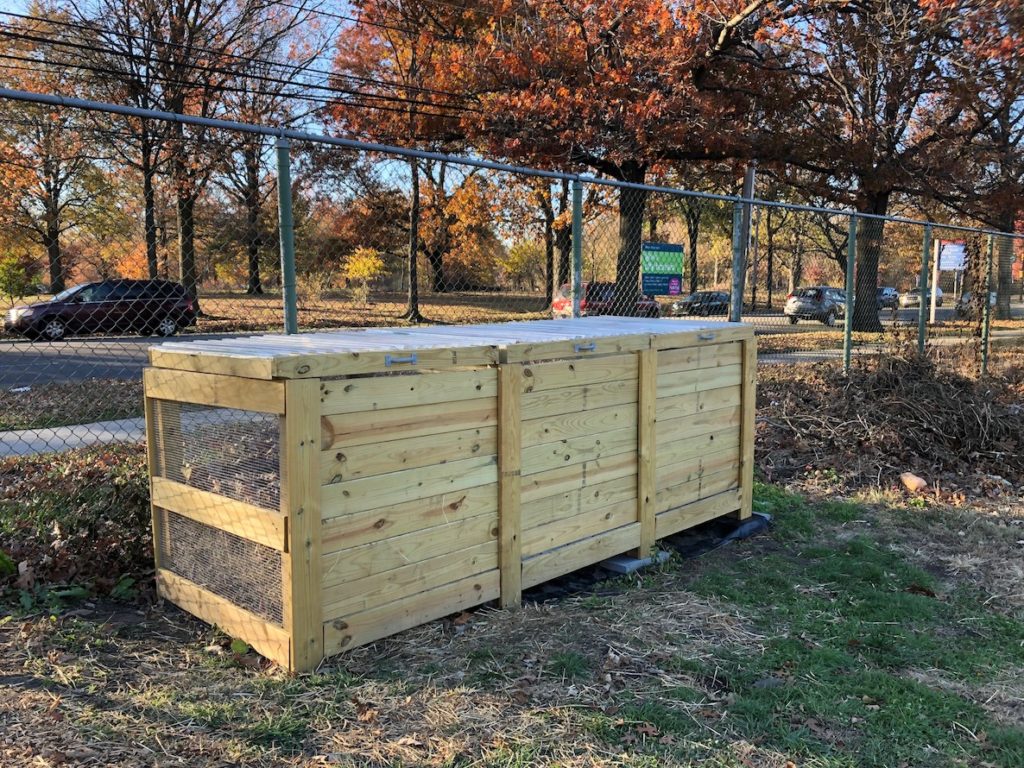
Another problem early on was burn out among compost leaders. “Eventually we created this cooperative model — you get to drop off compost and in exchange you have to help process it,” says Singer. In Washington, they keep the bins locked; in order to get the combination code, a new member must participate in a training implemented by the site’s designated composting managers and agree to work one hour each month for nine months. “It’s a fluid system and your capacity increases or decreases depending on how many people are participating,” says Singer. “And it doesn’t burn people out.”
Also, it’s crucial that these composting leaders are well-trained, which is why in ![]() 2014, the Institute for Local Self Reliance’s (ILSR) D.C. office, launched their Composting for Community initiative and much-needed Neighborhood Soil Rebuilders training program, which has been replicated across the country. “Composting is not rocket science,” says Brenda Platt, director of ILSR’s Composting for Community project, “but you still need to know what you’re doing.”
2014, the Institute for Local Self Reliance’s (ILSR) D.C. office, launched their Composting for Community initiative and much-needed Neighborhood Soil Rebuilders training program, which has been replicated across the country. “Composting is not rocket science,” says Brenda Platt, director of ILSR’s Composting for Community project, “but you still need to know what you’re doing.”
Platt and her colleague, Linda Bilsens, who bring Neighborhood Soil Rebuilders to communities along the East Coast, led the second of two day-long trainings for Philly’s composting pioneers last weekend. They learned how to turn a pile; how to properly balance carbon-rich materials (“browns” like wood chips, leaves, straw, and untreated cardboard) and nitrogen-rich materials (“greens” like food scraps, garden waste, and lawn clippings); and how to tell if compost is ready to use in the garden (germination or smell tests).
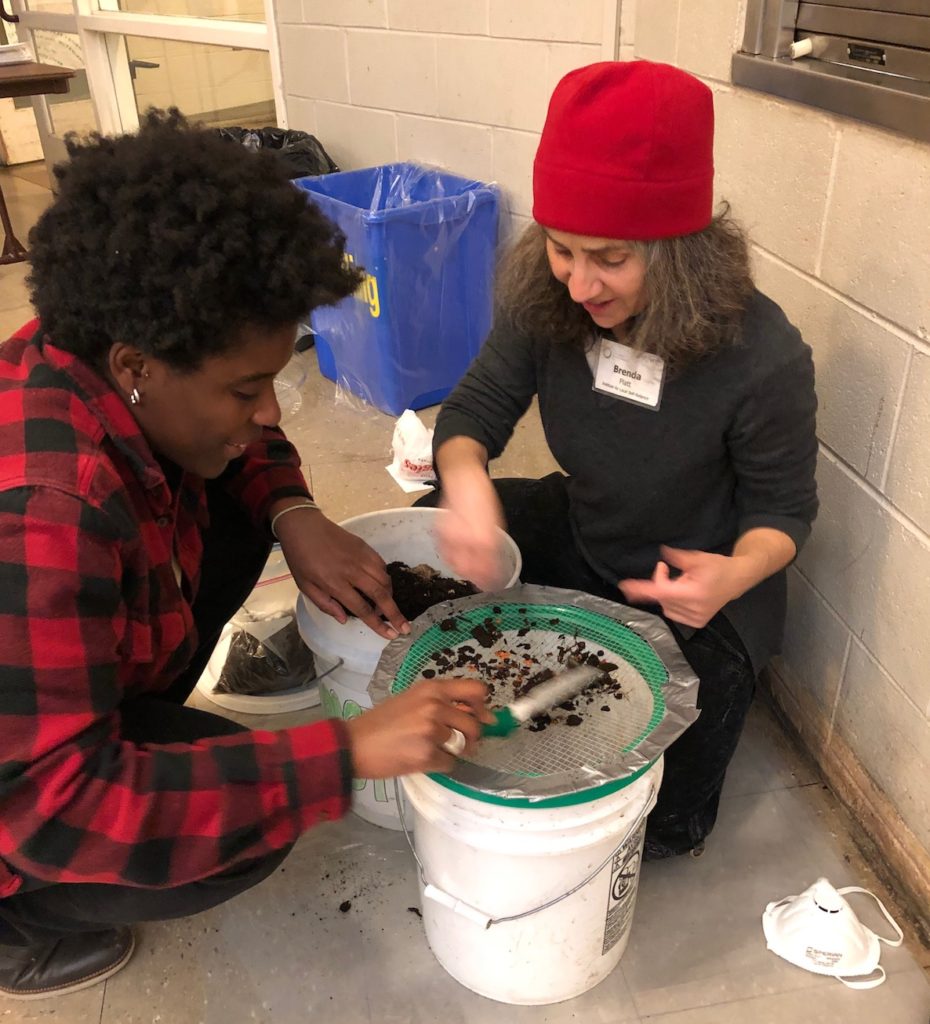
“The more you’re optimizing the conditions the more you can take,” says Platt. “You can have passive composting and let nature do its work and you’ll have compost in two years; or you can actively manage and have compost in six weeks.”
![]() They were also given time to brainstorm and plan how they’ll implement the project at their specific sites.
They were also given time to brainstorm and plan how they’ll implement the project at their specific sites.
“I see so many produce stickers,” a Temple student said to her peers, who already run a composting program on campus. They talked about how they’ll reorganize the system and create better signage for the new bin. Representatives from the Brewerytown Community Garden deliberated on strategies to educate garden members at their winter meeting and run trainings on Saturdays in the spring.
Some groups thought through solutions to the unique problems at their site. “We don’t get enough leaves in our space to balance the food scraps we’ll get,” says Julius Rivera to his fellow community gardener at Collins Smith Barrack Play Garden. He suggested paying neighborhood kids to collect the leaves from the sidewalks and bring them to the garden. “It would provide a service for the neighbors,” Rivera says. “And instead of those leaves going into the trash, they end up getting reinvested back into the space.”
“Composting is a key, short term strategy for addressing climate issues, and it’s one of the few things everyone can do,” says Platt.
His comment is a reminder that composting happens naturally in wild areas, of course, and that to do it in an urban environment requires some creativity. But we humans have been mimicking nature in concentrated, controlled systems to recycle nutrients as long as we’ve been cultivating food. And — replenishing the organic matter in our soils, the foundation of all life on earth — can address even bigger picture issues.
“In the face of seemingly intractable environmental problems, the new behavioral science indicates that you have to give people, particularly youth, impactful work to do,” says Platt. “Composting is a key, short term strategy for addressing climate issues and it’s one of the few things everyone can do.”
Photos by Katherine Rapin

